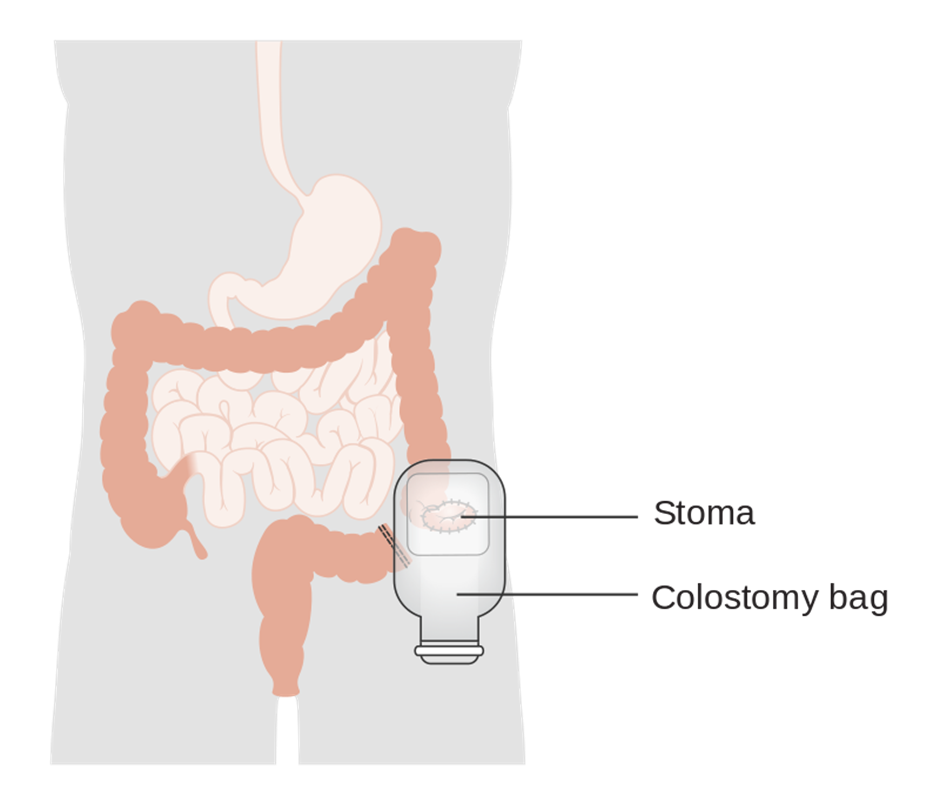A nurse is reinforcing teaching with a client who has a new ileostomy. Which of the following statements by the client indicates an understanding of the teaching?
will use a skin sealant before I apply the bag."
will use moisturizing soap to clean around the stoma before applying the bag."
will cut the wafer opening one-fourth of an inch larger than the stoma
1 will need to empty the bag every 4 to 6 hours."
The Correct Answer is A
Choice A Reason:
"I will use a skin sealant before I apply the bag." This statement is appropriate. Using a skin sealant before applying the ostomy bag helps protect the skin around the stoma, creating a barrier against irritation and potential leaks from the stool. It demonstrates the client's understanding of preventive measures to maintain skin integrity.
Choice B Reason:
"I will use moisturizing soap to clean around the stoma before applying the bag." This statement is inappropriate. While keeping the area around the stoma clean is important, using moisturizing soap might not be recommended as it can leave residue and interfere with the adhesive properties of the bag. Typically, mild soap and water are recommended for cleansing.
Choice C Reason:
"I will cut the wafer opening one-fourth of an inch larger than the stoma." This statement is incorrect. Cutting the wafer opening one-fourth of an inch larger than the stoma might result in an excessively large opening, potentially leading to leaks or irritation. The ideal size is generally recommended to be as close to the stoma size as possible without causing pressure on the stoma.
Choice D Reason:
"I will need to empty the bag every 4 to 6 hours." This statement is incorrect. While regular emptying of the ostomy bag is necessary, the frequency can vary based on individual needs and stoma output. Some individuals might need to empty it more frequently or less often, depending on their stool output and comfort level.
Nursing Test Bank
Naxlex Comprehensive Predictor Exams
Related Questions
Correct Answer is D, A, B, C, E
Explanation
Correct Answer is A
Explanation
Choice A Reason:
Passing of flatus is correct. Passing flatus (gas) is an encouraging sign that the digestive system is functioning and that gas is moving through the colostomy. This is a positive indicator of colostomy function.
Choice B Reason:
Stoma is pinkish-red. A pinkish-red stoma indicates good blood circulation to the area, which is vital for the health of the stoma tissue. A healthy-colored stoma is a positive sign.
Choice C Reason:
Tolerating a clear liquid diet. Tolerating a clear liquid diet might be an indicator of gastrointestinal function, but it might not specifically confirm the functionality of the colostomy itself.
D. Absent bowel sounds
Absent bowel sounds might be present immediately postoperatively due to the effects of anesthesia and abdominal surgery. However, bowel sounds aren't a direct indicator of colostomy function.

Whether you are a student looking to ace your exams or a practicing nurse seeking to enhance your expertise , our nursing education contents will empower you with the confidence and competence to make a difference in the lives of patients and become a respected leader in the healthcare field.
Visit Naxlex, invest in your future and unlock endless possibilities with our unparalleled nursing education contents today
Report Wrong Answer on the Current Question
Do you disagree with the answer? If yes, what is your expected answer? Explain.
Kindly be descriptive with the issue you are facing.
